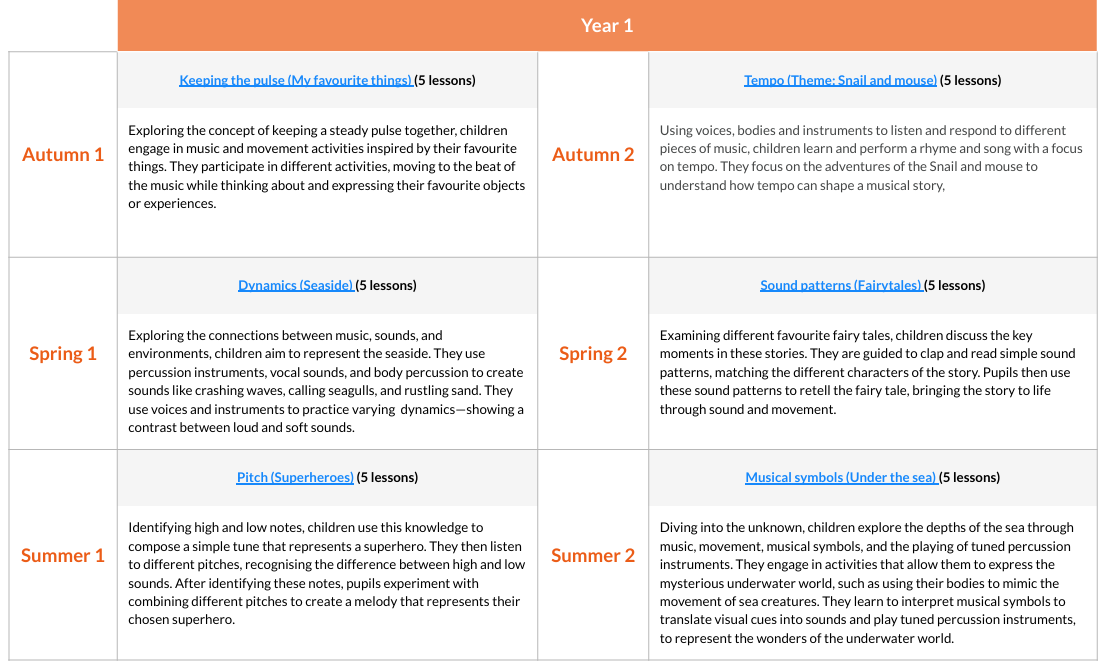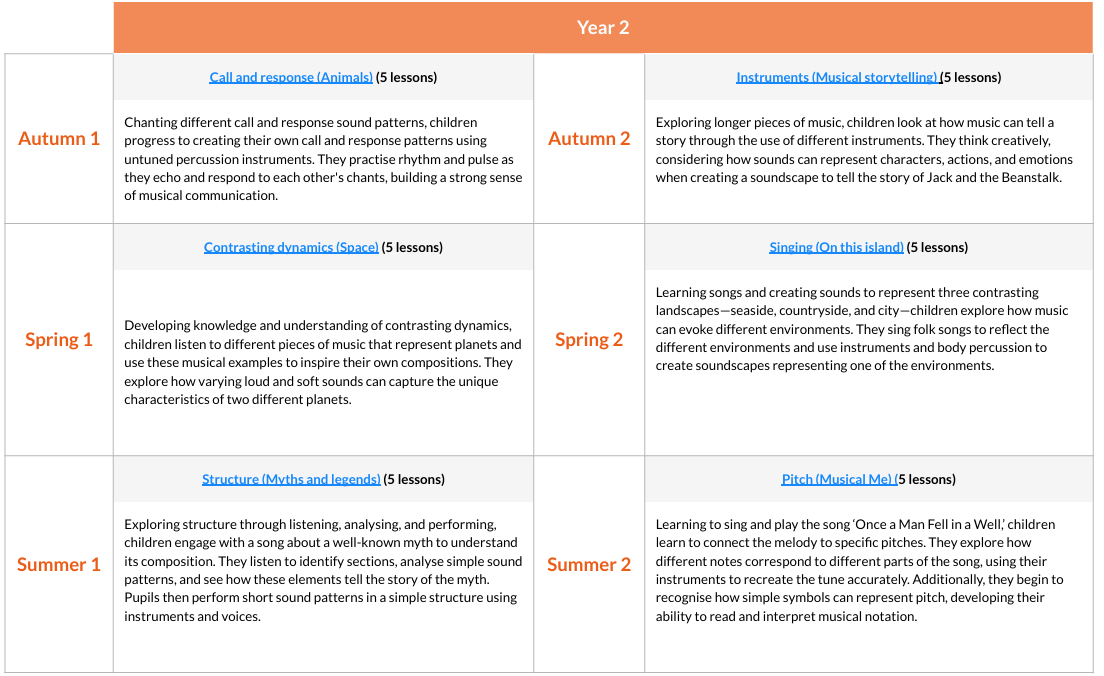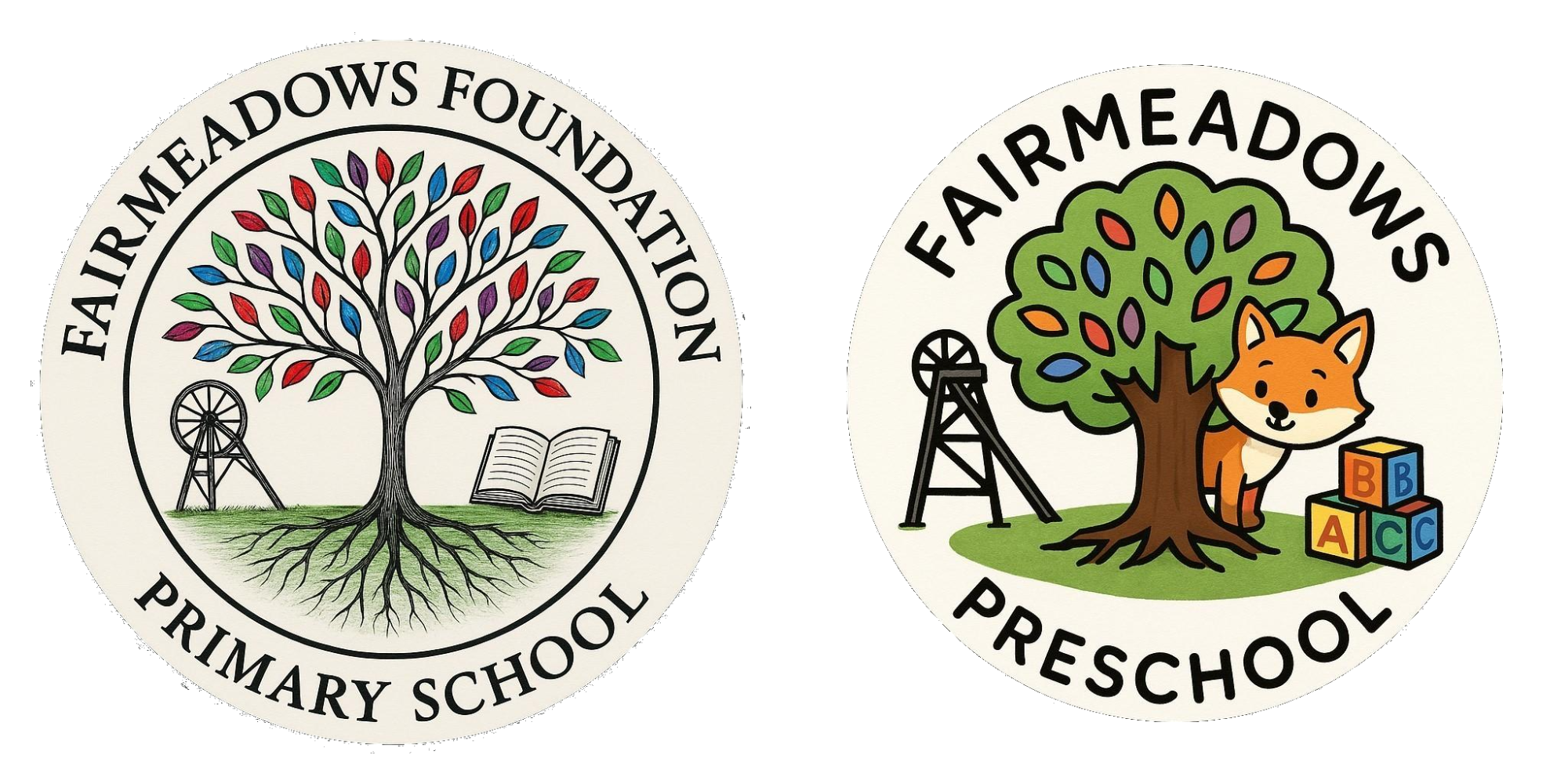Music
What we teach:
At Fairmeadows, pupils in Key Stage 1 are taught Music weekly using the Kapow Scheme of work. The Kapow Primary Music scheme of work follows a structured, spiral curriculum, which enables skills and knowledge to be built upon from year to year. The Kapow scheme of work fulfils the statutory requirements outlined in the National Curriculum (2014) and follows the principles outlined in the non-statutory Ofsted Research review series: Music and HM Government’s National Plan for Music which explains how to build on the Department for Education’s Model Music Curriculum (2021) to deliver high quality music in schools.
Below is an overview of what is covered and when in Year 1 and Year 2.


In Key Stage 2, music lessons are delivered weekly by the Music Partnership, and they teach children to play a musical instrument. Year 3 and 4 pupils learn Ukuele and Year 5 and 6 pupils learn to play brass instruments.
In addition to the taught music curriculum, learners listen to a range of music styles and genres in assembly, as well as having a singing assembly.
How we teach it:
Progression is broken down into the following key areas:
- Listening and evaluating – expressing musical preferences; exploring the impact of musical ideas; understanding how effects are created by combining musical elements.
- Creating sound – exploring the children’s vocal skills; developing skills to manipulate sounds on a range of instruments.
- Notation – recognising the basics of musical notation; reading simple rhythmic patterns; developing the foundational knowledge of how staff and graphic notations can communicate music.
- Improvising and composing – creating and refining the children’s own music through improvisation and notation; experimenting with styles and features; employing musical concepts to add interest.
- Performing – using voices expressively; developing instrumental control and expression; performing as part of a group.
How do we know pupils are learning?
In Key Stage 1, every lesson begins with the 'Recap and recall' section, which is intended to allow pupils retrieval practice of key knowledge relevant to the upcoming lesson. This section also provides teachers with an opportunity to make informal judgements about whether pupils have retained prior learning and are ready to move on. After each lesson, teachers assess the progress and understanding of the pupils, identifying those who need further recap; those who are secure in their learning or those who are working at a greater depth. These assessments are then recorded on our Music Assessments objectives grid on Insight, which supports the teacher in identifying gaps in learning amongst the class or for individual pupils.
Within the Kapow units there are also opportunities for Summative Assessment. Each unit of work assesses children’s understanding and retention of key knowledge using an assessment quiz with multiple choice questions and one open-ended question. Quizzes feature audio clips to ensure that pupils are able to apply their knowledge. Assessment quizzes offer teachers valuable summative records, serving as evidence of pupil progression throughout the year and as they transition through school. Recording pupils during practice and performance sessions is also beneficial. These recordings allow teachers to review performances or group practice at their convenience, focusing on different pupils to identify strengths and areas for improvement. Additionally, such recordings provide a useful documentation of progression over time.
In Key Stage Two, the specialist teachers assess the content which they are delivering and regularly share this with class teachers. Similarly to Key stage 1, we use Seesaw and recordings of pupils at the beginning of their learning and then a further recording at the end to review their progress. At the end of the year, children are also involved in a performance where they can showcase their skills to the school and their parents.
Music Development Plan
Action Plans
Useful Links:
New National Plan for Music Education – Full document
Model Music curriculum –
Derbyshire Music Hub:
Entrust Staffordshire
South Derbyshire Music Centre – Choir + Ensemble Opportunities
Access to choir from aged 4-11+ / woodwind and brass band for beginners:
Instrumental Tuition:
